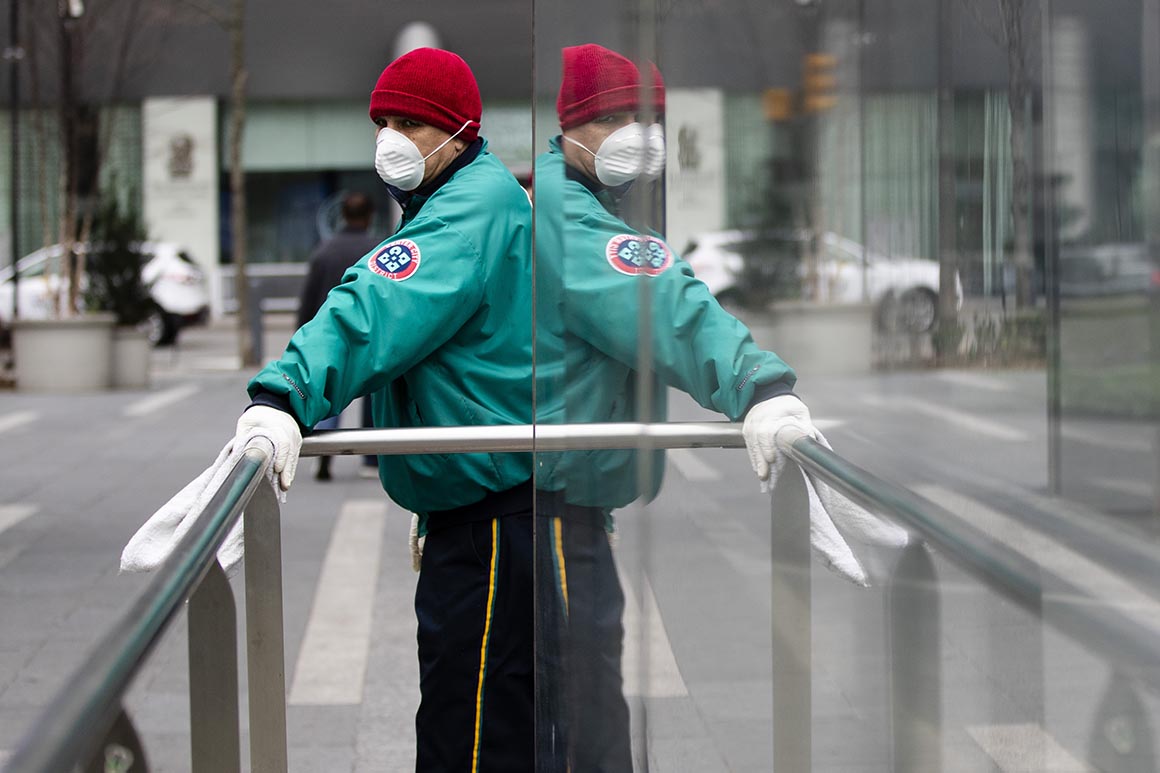
A group of mostly UK researchers, publishing in the Lancet, a top peer-reviewed medical journal, on March 20, recommended that „vulnerable populations, such as older adults and those with underlying medical conditions, should wear face masks if available. Universal use of face masks could be considered if supplies permit.“
As of Monday, federal authorities were not budging. William Schaffner, a professor of preventive medicine and infectious diseases at Vanderbilt University Medical Center in Tennessee, said CDC experts were “very loath“ to issue recommendations that were not based on robust data.
But Schaffner, who keeps in touch with government health officials, told POLITICO that the possibility has been broached within the CDC of issuing guidance suggesting the public use “mask alternatives,” while at the same time disclaiming a lack of published studies showing them to be effective for general use in public settings.
“I do not know how far those discussions have gotten along,“ Schaffner said.
He said data suggesting that people could prevent catching the virus by wearing masks in public was “scant.” But he added, “the absence of data doesn’t mean the absence of effect.“
Shan Soe-Lin, a lecturer in global health at the Jackson Institute for Global Affairs at Yale University, said there is enough data showing face coverings are effective for use by the general public that people should be using them. „Admittedly, the studies are small,” she said, but there is evidence that “in pandemic settings, masks can be helpful.“ Soe-Lin and Hecht, who are married and run the nonprofit Pharos Global Health Advisors, authored a Boston Globe op-ed earlier this month that called into question federal guidance and urged people to begin wearing face masks — including basic face coverings like a scarf or bandana — while continuing to prioritize the distribution of medical-grade masks to hospitals.
As for federal officials’ argument that wearing a mask will cause people to touch their face more often, Soe-Lin said she has looked for studies that back such a finding and found none. Both she and Hecht said that in their personal experience, they have been touching their faces far less often since donning face coverings.
Schaffner also said he was aware of no data showing that wearing a mask could increase risk by making people touch their face more. He said he was also not aware of data showing that wearing a mask could cause a user to touch their face less often, but he said that in his own personal experience, he, too, tends to touch his face less often when he wears a mask to treat patients.
Recommendations about the use of face masks have diverged widely from place to place, and can vary based on local availability as well as the type of face mask. Public health authorities both in the U.S. and around the world have called for prioritizing face mask allocation to health care providers and those infected with the virus.
Source: politico.com
See more here: news365.stream






